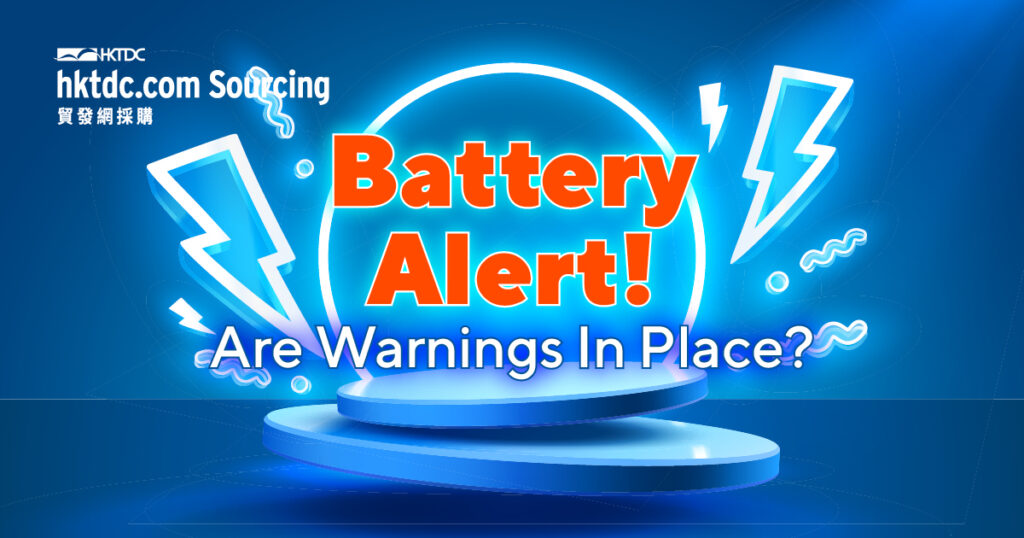Small round batteries have been commonly used, and these batteries are called “coin” or “button” interchangeably based on their shape, regardless of the chemicals inside. Yet there is an important difference between them: Coin batteries contain lithium, button batteries do not.
All small batteries are potentially dangerous to children who access them. Ingestion by young children increasingly causes injuries and tragic fatalities.
How Serious Is the Consequence of Battery Misuse?
The highest risk occurs with lithium batteries having a diameter of about 20 mm. A quick internet search on this topic will result in tragic stories from inconsolable, bewildered parents and horrific pictures of internal burns and the consequences of lethal chemical reactions inside the child’s body. This higher risk is caused by the facts that lithium batteries work at a higher voltage and due to their dimensions they are more likely to become stuck in a child’s oesophagus after ingestion.
Preventive Measures to Mitigate Battery Risks
The warnings are different for the two types of batteries, that is why it is important to distinguish coin from button batteries.
Warnings for Toys with Replaceable Batteries
Electric toys using replaceable coin (read: lithium) batteries shall carry the following warning on the packaging:
- Warning: Contains coin battery. Hazardous if swallowed – see instructions.
Alternatively, the packaging shall be marked with symbol ISO 7000-0790 and warning sign ISO 7010 W001 with a coin battery symbol. The two signs shall be placed next to each other and must be explained in the instructions.


All electric toys using replaceable (coin and button) batteries shall state the following warning in the instructions:
- Warning: Dispose of used batteries immediately. Keep new and used batteries away from children. If you think batteries might have been swallowed or placed inside any part of the body, seek immediate medical attention.
Additional warnings
Standard EN 60086-4 deals with the safety of non-rechargeable lithium batteries provides the following example of an appropriate warning text:

In summary, protective measures include:
- creating awareness, adequate warnings and instructions
- designing secure battery enclosures
- keeping batteries out of reach of children
- using child resistant packaging
- immediate disposal of used batteries
Source Batteries & Electronics at Our Spring Electronics Fair!
Explore diverse electronics including safe batteries by visiting us physically at the upcoming Hong Kong Electronics Fair (Spring Edition) from 13 to 16 April 2026, and discuss the future of electronics with your industry peers!
Bearing safety standards and quality in mind, our e-Marketplace provides a number of electronic product selections with the highest possible standards to assure our customers with trusted product deliveries.
Start your discovery by clicking the banner below:
This article is originally published by ProductIP:

Caspar ter Horst – Managing Director, ProductIP
Caspar has 25+ years of experience in product compliance. In 2008, he co-founded ProductIP together with Maarten van der Dussen. Caspar and his team are dedicated to support companies within the supply chain to efficiently demonstrate to customers, authorities, and users that their products meet applicable legislation and buying requirements. As a result, helping companies reduce costs, streamline operations, manage suppliers, and at the same time put compliant, safer, more sustainable products to the market.
Battery FAQ
Are coin and button batteries the same?
They’re often used interchangeably. “Coin cell” refers to lithium 3V types, while “button cell” often refers to 1.5V alkaline or silver oxide types.
What should I do if someone swallows a coin battery?
Seek emergency medical attention immediately.
Do not induce vomiting or give food/drink. If a child swallows one, time is critical — the battery can cause burns in as little as two hours.
How should I dispose of coin batteries?
Do not throw them in household trash. Take them to:
- Battery recycling bins
- Electronics stores
- Hazardous waste collection centers









